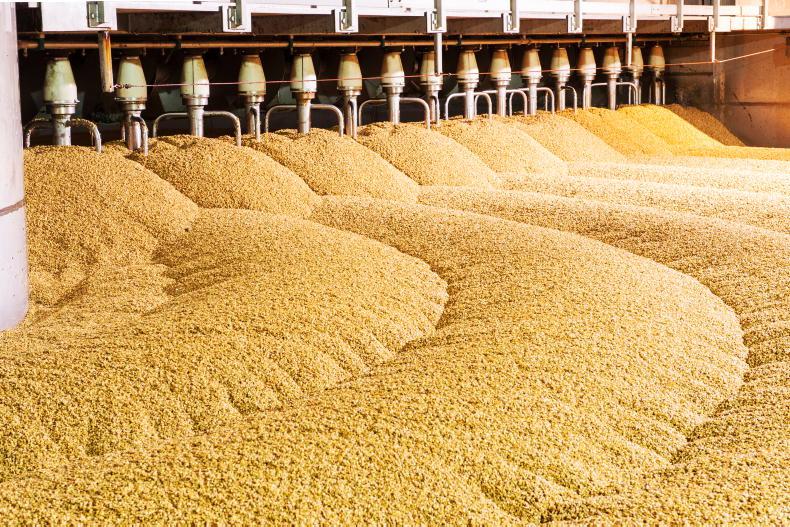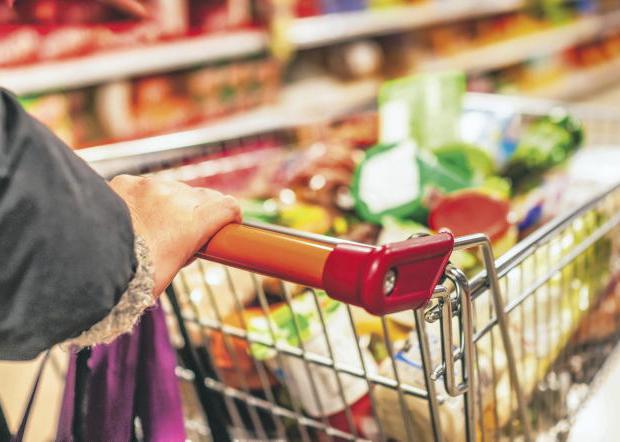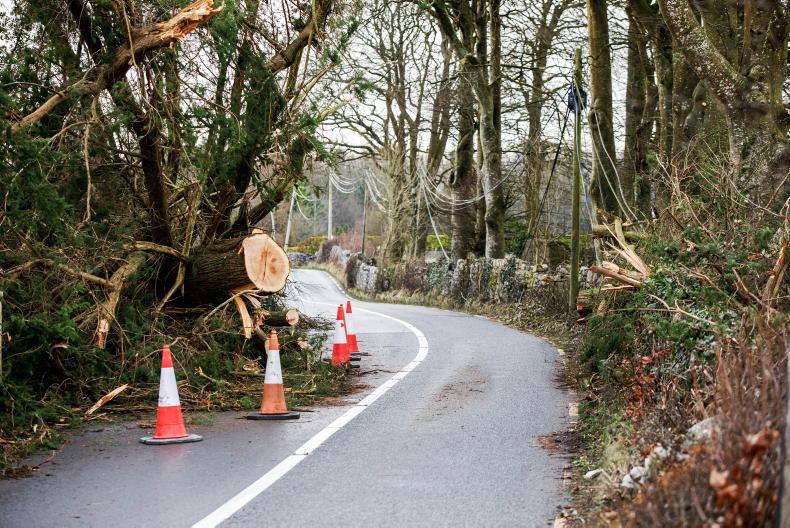Investment of almost €1bn to plant thousands of hectares of trees and rewet peatlands could see Ireland reduce its carbon emissions by 3.5 million tonnes (Mt), a new Climate Change Advisory Council (CCAC) report has found.
The joint report with the Irish Fiscal Advisory Council (IFAC) revealed that Ireland is the worst-performing country in the EU in terms of CO2 equivalent emissions per person.
The report estimates that if Ireland continues with only existing measures for emissions reductions until 2030, across all sectors, the country could face fines of between €7.5bn and €26.6bn.
Meanwhile, including the Government’s additional planned measures, Ireland could face fines of between €3.4bn and €11.9bn.
In terms of agriculture, the report focused on rewetting 80,000ha of peatlands, which could deliver massive reductions in emissions at a low cost.
With an estimated outlay of €300m, it could save a cumulative total of 6.5Mt CO2 equivalent of emissions by 2030, according to Teagasc.
CCAC chair Marie Donnelly said that the Government should act now and spend the money on infrastructure and technology instead of on fines in the future.
“The numbers we’re talking about here are on top of business as usual. It’s not cheap, but we might have fines coming down the line; they’re expensive, some of these measures are also expensive. It’s better to spend the money now,” she said.
Land use
In addition, afforestation of 8,000ha and the prevention of deforestation of 500ha/year could cost €200m, but could mitigate a total of 0.8Mt CO2 equivalent and 1.1Mt CO2 equivalent respectively by 2030.
The report showed that the agriculture sector accounted for 51% of Ireland’s effort sharing regulation (ESR) emissions in 2022, followed by transport on 26%.
Speaking to the Irish Farmers Journal, Donnelly added that there is a focus on using newer technologies such as protected urea, slurry and feed additives, and multi-species swards.
“For farmers, it’s a gradual change and change is always difficult, but farming has gone through change always and it has always managed it. I think part of the challenge we have here is that we need to move faster than the normal rate of dissemination.
“In order to do that, we have to be able to get the message out to farmers to give them, firstly, the knowledge of what’s there, support that it actually does work and then assistance in actually applying it on the farm.”
Charges
Ireland has already been charged for missing targets over the last 10 years and is estimated to have forgone €1.4bn between fines incurred, energy credits bought and inability to sell credits.
IFAC chair Seamus Coffey said that although the fines will not be specifically passed on to farmers, due to the size of the sector, input costs will increase.
“The out-turns and figures for agriculture are clearly going to have a big impact, just given the size of [the sector] in our overall economy and overall emissions,” he added.
“If we could reduce emissions by more in other sectors, that benefit would be felt across the economy and maybe give space for more emissions in other sectors.”
Read more
IFA calls emergency meeting on peat soil threats
News Podcast: rewetting targets, calf boats and windblow
Farmers who turned ‘brown ground green’ should not have to rewet - Healy-Rae
Windblow has major repercussions for forestry sector
Investment of almost €1bn to plant thousands of hectares of trees and rewet peatlands could see Ireland reduce its carbon emissions by 3.5 million tonnes (Mt), a new Climate Change Advisory Council (CCAC) report has found.
The joint report with the Irish Fiscal Advisory Council (IFAC) revealed that Ireland is the worst-performing country in the EU in terms of CO2 equivalent emissions per person.
The report estimates that if Ireland continues with only existing measures for emissions reductions until 2030, across all sectors, the country could face fines of between €7.5bn and €26.6bn.
Meanwhile, including the Government’s additional planned measures, Ireland could face fines of between €3.4bn and €11.9bn.
In terms of agriculture, the report focused on rewetting 80,000ha of peatlands, which could deliver massive reductions in emissions at a low cost.
With an estimated outlay of €300m, it could save a cumulative total of 6.5Mt CO2 equivalent of emissions by 2030, according to Teagasc.
CCAC chair Marie Donnelly said that the Government should act now and spend the money on infrastructure and technology instead of on fines in the future.
“The numbers we’re talking about here are on top of business as usual. It’s not cheap, but we might have fines coming down the line; they’re expensive, some of these measures are also expensive. It’s better to spend the money now,” she said.
Land use
In addition, afforestation of 8,000ha and the prevention of deforestation of 500ha/year could cost €200m, but could mitigate a total of 0.8Mt CO2 equivalent and 1.1Mt CO2 equivalent respectively by 2030.
The report showed that the agriculture sector accounted for 51% of Ireland’s effort sharing regulation (ESR) emissions in 2022, followed by transport on 26%.
Speaking to the Irish Farmers Journal, Donnelly added that there is a focus on using newer technologies such as protected urea, slurry and feed additives, and multi-species swards.
“For farmers, it’s a gradual change and change is always difficult, but farming has gone through change always and it has always managed it. I think part of the challenge we have here is that we need to move faster than the normal rate of dissemination.
“In order to do that, we have to be able to get the message out to farmers to give them, firstly, the knowledge of what’s there, support that it actually does work and then assistance in actually applying it on the farm.”
Charges
Ireland has already been charged for missing targets over the last 10 years and is estimated to have forgone €1.4bn between fines incurred, energy credits bought and inability to sell credits.
IFAC chair Seamus Coffey said that although the fines will not be specifically passed on to farmers, due to the size of the sector, input costs will increase.
“The out-turns and figures for agriculture are clearly going to have a big impact, just given the size of [the sector] in our overall economy and overall emissions,” he added.
“If we could reduce emissions by more in other sectors, that benefit would be felt across the economy and maybe give space for more emissions in other sectors.”
Read more
IFA calls emergency meeting on peat soil threats
News Podcast: rewetting targets, calf boats and windblow
Farmers who turned ‘brown ground green’ should not have to rewet - Healy-Rae
Windblow has major repercussions for forestry sector









SHARING OPTIONS